A harrowing look at the epicenter of the pandemic, moving stories for the fight for justice, journies into animal worlds, unpacking the intricacies of bureaucratic systems, and a bar’s final night–these were just a few of the subjects and stories that this year’s documentary offerings brought us. With 2020 wrapping up, we’ve selected 18 features in the field that left us most impressed. If you’re looking for where to stream them, check out our handy guide here.
76 Days (Hao Wu, Weixi Chen, and Anonymous)
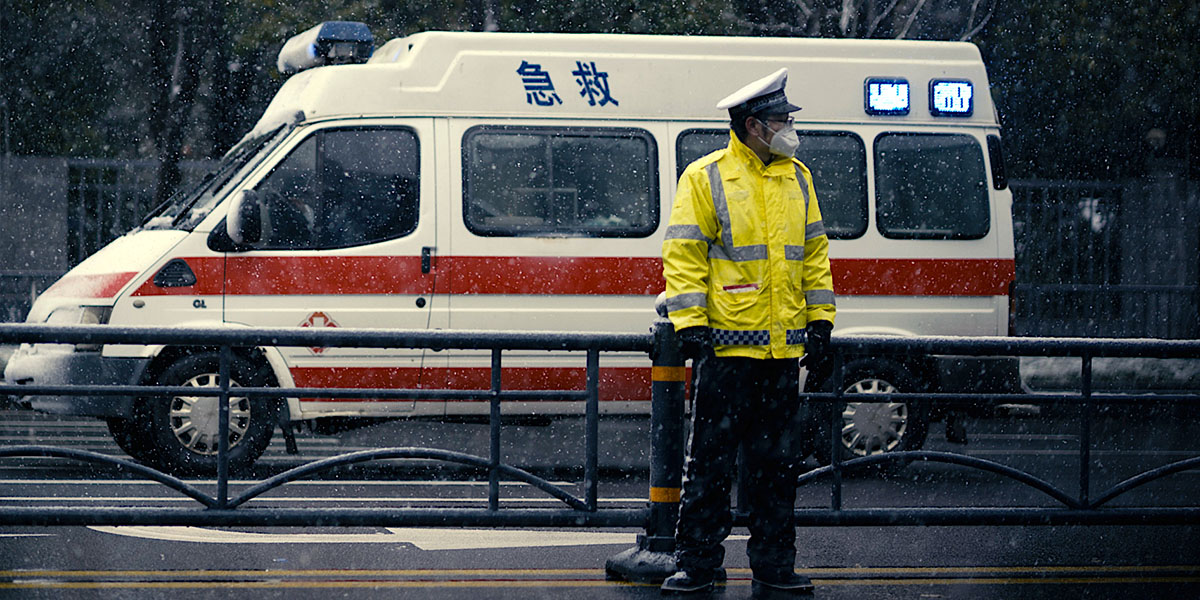
76 Days, from directors Hao Wu, Weixi Chen, and an anonymous filmmaker,is a heartbreaking work of documentary vérité investigating the emerging COVID-19 outbreak at a single hospital in Wuhan, China, and their response from early February to April 2020, when Wuhan lifted their initial lockdown. Eschewing contextualizing features (narration, title cards, etc.), 76 Days places viewers alongside doctors and nurses as they struggle to control the spiraling implications of COVID-19, dealing with an influx of scared patients, a virus they do not fully understand, and diminishing resources. Though 76 Days proves a hard watch, it’s a profoundly visceral look into how one hospital dealt with the raging virus. – Christian G. (full review)
Bloody Nose, Empty Pockets (Ross Brothers)
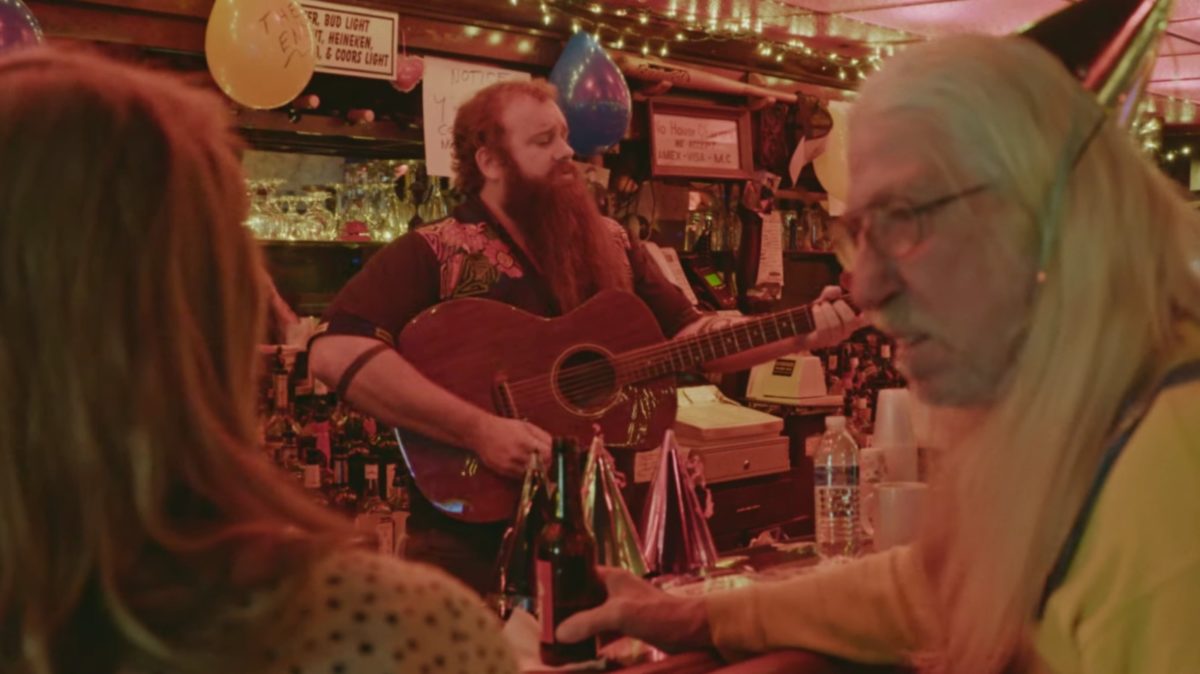
With their latest film Bloody Nose, Empty Pockets, brothers Bill Ross IV and Turner Ross turn their lens on that warmly inviting, idyllically dingy, and endlessly lively microcosm of society: the dive bar. Premiering in the U.S. Documentary Competition section at Sundance, the filmmakers behind Western and Tchoupitoulas once again break the boundaries of such a programmatic box, using a casted ensemble, a scouted location, a vérité style, and the loosest of scripted ideas to explore community, pain, and regrets in America circa 2016—and particularly the unfiltered honesty in which these themes can be conveyed when a ceaseless stream of alcohol is involved. This collection of lost souls and inquiry into their perspective on life results in a tale of profound authenticity and devastating heartbreak. – Jordan R. (full review)
Boys State (Amanda McBaine and Jesse Moss)

What makes Boys State so compelling is it appeals both to the most cynical and hopeful of viewers. Yes, we see how even in this relatively small exercise how the political process can be distorted and result in succumbing to humanity’s worst impulses in order to achieve victory. On the other hand, we can see how underdogs that have hope for America coming together can at least get close to achieving an idyllic future in which a healthy democracy can play out across every state. It’s this shifting of individual minds that takes hard work and may even surprise those who set out to accomplish the task. “At first I thought this was a conservative indoctrination camp,” Rene says. “But it’s about opinions and recognizing and reconciling them.” – Jordan R. (full review)
City Hall (Frederick Wiseman)

In the opening shot of Frederick Wiseman’s National Gallery, a man polishes the floor in a room walled with masterpieces. Writing about the scene for MUBI recently, the critic Joseph Owen noted that “the politics of this institution exist in a subterranean passage: between its low-paid maintenance jobs and its disreputable oil sponsorships.” Petrodollars aside, it’s an observation that speaks in some way to any number of Wiseman’s films: that the souls of the institutions he so dedicatedly depicts are neither the heads on top, the public face or the multitude of working parts below but something malleable and indefinable in the middle. The director’s latest is documentary epic, a sprawling 4.5-hour study of Boston’s City Hall and its various satellite entities, that once again goes in search of that middle—although for once with an uncharacteristic scent of subjectivity. – Rory O. (full review)
Collective (Alexander Nanau)
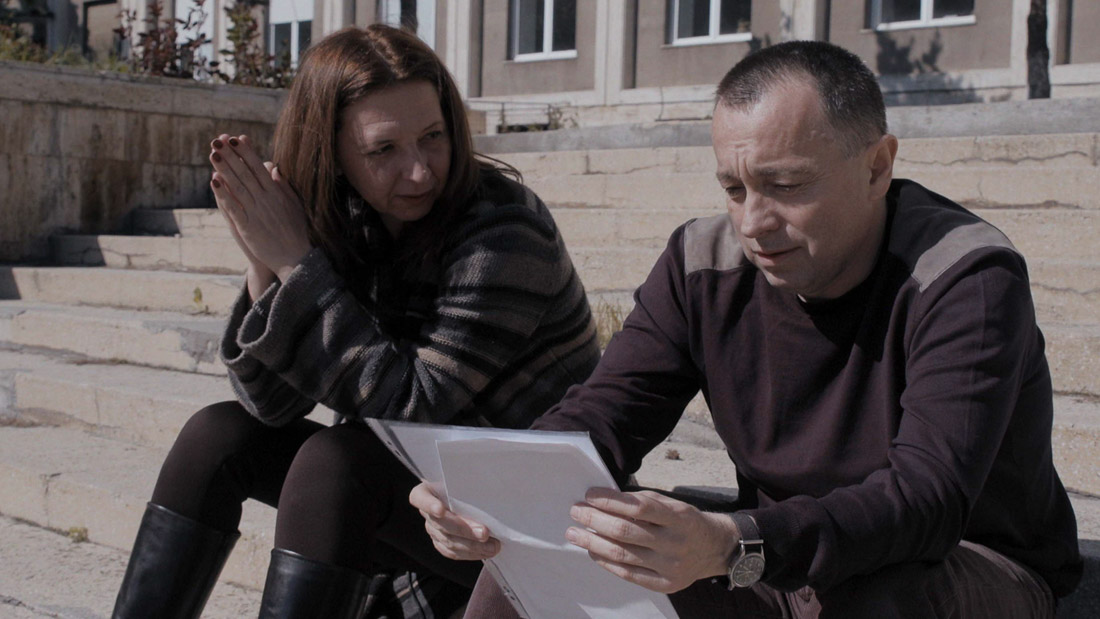
Part journalism procedural and part depressing exposé, Alexander Nanau’s verité documentary Collective examines the institutional corruption at the heart of the Romanian health care sector. The existence of such organized malfeasance will come as no surprise to anyone who has seen any of the Romanian New Wave films that touch on the country’s nightmarish bureaucracy. But, really, any sentient human being living in the western world won’t be blindsided by the fact that for-profit industries cuts corners or that government officials outright lie to the press about various wrongdoings. Many Americans, currently living through an epistemological crisis of staggering proportions, are now slowly inured to such ugly realities. – Vikram M. (full review)
Dick Johnson Is Dead (Kirsten Johnson)

There’s only one universal truth shared amongst all humans: one day, we will die. For some, this cold, uncomforting reality can lead to paralyzing anxiety as we think of who and what we’ll leave behind. For others, it’s a call to action to live every day with receptive empathy towards others and a curiosity to explore what the world has to offer. As already proven in her masterful directorial debut Cameraperson, Kirsten Johnson clearly falls into the latter category. With her brilliant follow-up Dick Johnson Is Dead, leave it to the director to create an exploration of death that is fun, bittersweet, and bursting with colorful imagination. In her portrait of her (spoiler warning!) still-alive father, she carries the same self-reflexive wit and vision as her prior film but takes it in a whole other direction. – Jordan R. (full review)
Feels Good Man (Arthur Jones)
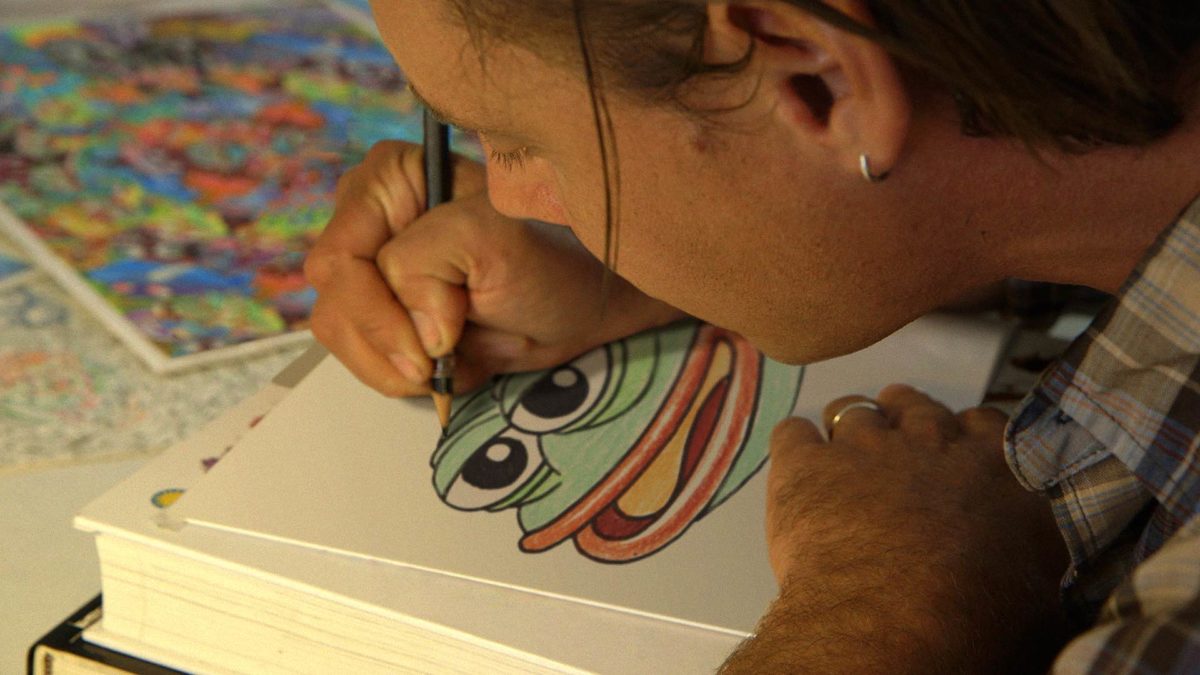
A small, harmless frog peacefully existing by the water is the first image presented in Feels Good Man. What follows from that serene moment––a nod to the source of innocent inspiration for Pepe the Frog––is a clear-eyed, disturbing look at how the playful creation was perverted and carried through a malevolent maelstrom of digital discourse in the darkest corners of the internet. Arthur Jones’ documentary stays sharply focused on the specific path in which Pepe the Frog eventually became classified as a hate symbol by the Anti-Defamation League, but he also paints a larger, more terrifying picture of how an anonymous population wields the power to shift political change from their keyboards and the juvenile motivation in which their flimsy ideology is founded upon. – Jordan R. (full review)
Free Time (Manfred Kirchheimer)
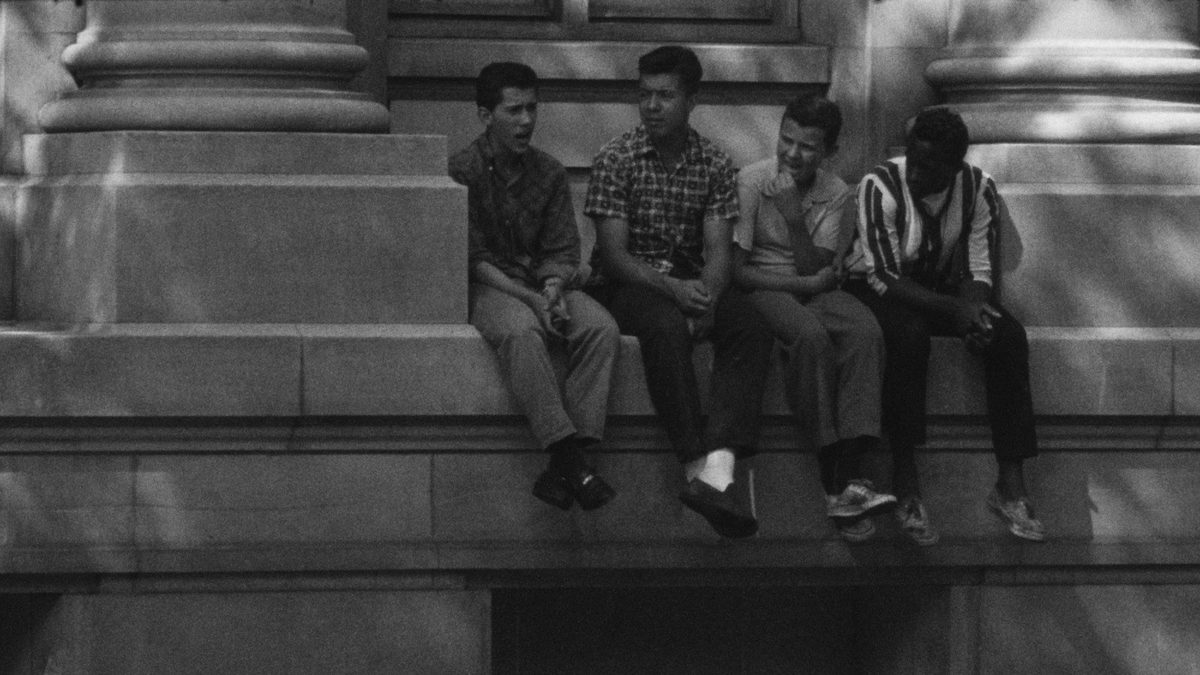
Kircheimer put the film together some 60 years after compiling the material, but Free Time doesn’t perform the duties of a nostalgic travelogue. It lets itself find a journey by avoiding a destination, a wanderer without purpose who finds humanity because it’s impossible not to. Kirchheimer visits several neighborhoods in Manhattan without labeling or contrasting them with his visit to Queens. That the film arrives during a time when New York City is undergoing another period of reinvention, healing, and repurposing isn’t only a gift that reminds us the beauty that makes us stay here is still there. It’s in the details of in the facade of a building we see but have never stopped being in awe of, or the way in shadows reflected on a bridge tell a story to someone who can see the shadow but not the person creating it. – Jose S. (full review)
Heimat Is a Space in Time (Thomas Heise)
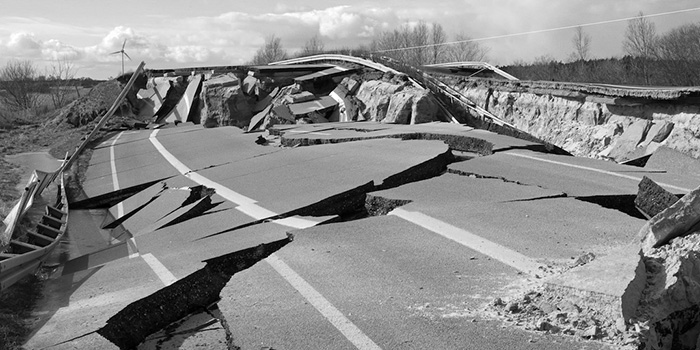
How much of our ancestry is tied to the history of the places we call home? While some of us would probably answer “None,” we’d be wrong. Just because your family tree was lucky enough to exist on the periphery of major historical moments as bystanders doesn’t mean you haven’t been impacted by wars, tragedies, inventions, and art in ways that defined your choices and subsequently the choices of your children. Why did my grandfather immigrate to America from Lebanon (then part of Syria) when he did? How did my father not getting drafted to Vietnam influence my sister’s birth and my own? Where does 9/11 fit in as an Arab American who never had an ethnic option on forms to check besides “Caucasian” previously? History defines us. With that said, however, some are embedded much deeper than others. One example is German documentarian Thomas Heise. – Jared M. (full review)
Gunda (Victor Kossakovsky)

In 2018, Victor Kossakovsky set out to shoot Aquarela, a survey-symphony that took the Russian documentarian around the world to capture glaciers, waterfalls, frozen lakes, oceans, and storms. Water, art-speak waffle as it may sound, served as Aquarela’s only protagonist: in that hyper-high-definition blue canvas, human faces seldom popped up, and voices were seldom heard, as Kossakovsky’s focus centered squarely on his liquid star alone. A mystifying follow-up working again to question and depart from an anthropocentric perspective, here comes Gunda, a black-and-white, dialogue-free documentary chronicling a few months in the lives of the animals stranded in a Norwegian farm. – Leonardo G. (full review)
I Wish I Knew (Jia Zhangke)

The latest Jia Zhangke film to arrive in the United States is technically not a new film, but rather a director’s cut of his 2010 documentary, I Wish I Knew. While the previous cut made it to festivals, it rarely screened elsewhere. One of cinema’s modern masters, his surge in popularity coming from his latest three masterpieces–A Touch of Sin, Mountains May Depart, and Ash is Purest White–has thankfully meant that an underseen work is getting proper U.S. distribution and hopefully a sustainable way to experience it for years to come. – Logan K. (full review)
Mayor (David Osit)
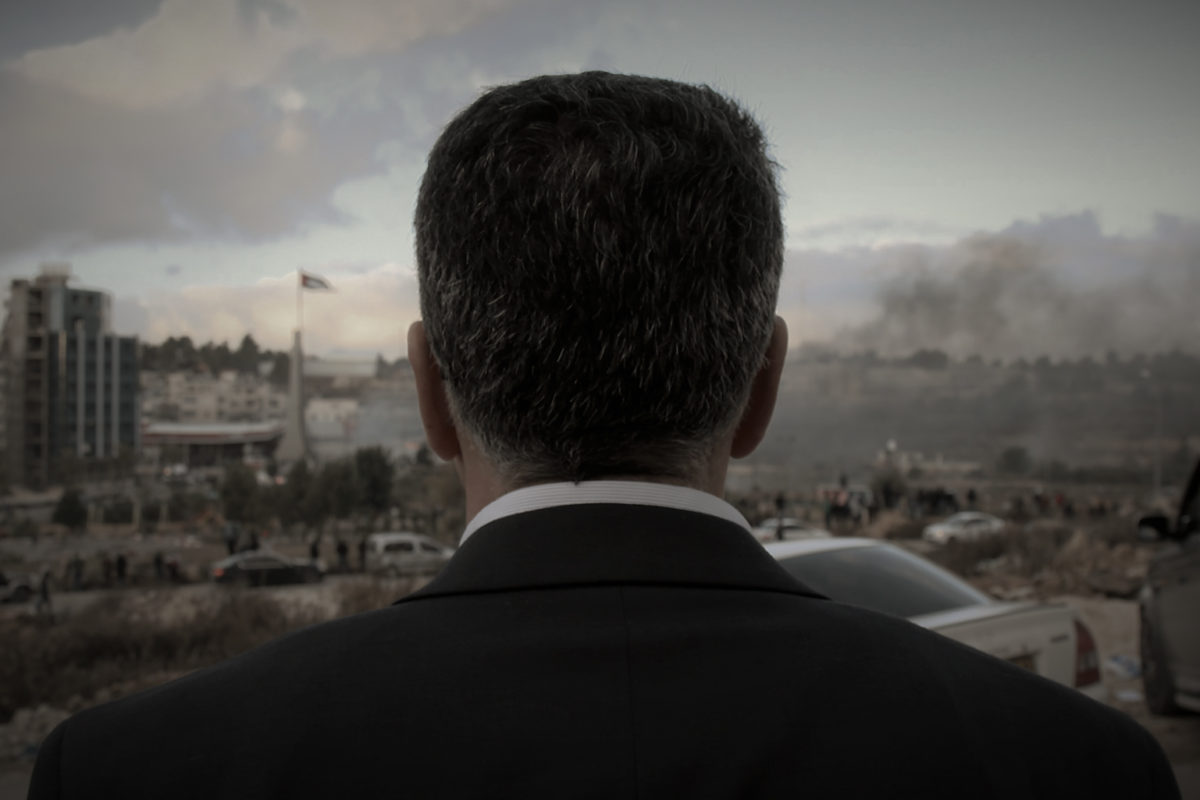
The reign of bigotry and terror from Donald Trump and his administration can often take the form of a myopic view for those in the United States, witnessing on a daily basis how the soon-to-be-ousted leader is further corroding the sharp political divide in his own country. However, the reverberations of his decisions, of course, have a global impact, and David Osit’s riveting new documentary Mayor shows how the President’s heedless actions have exacerbated long-held strife in Ramallah, the Palestinian city in the central West Bank located mere miles from Jerusalem. The ”city in transition” is led by Musa Hadid, a humble Christian mayor who deeply empathizes with his community as they are controlled by the Israelis and surrounded by their encroaching settlements. The threat against their livelihood reaches more peril when Trump officially declares Jerusalem as Israel’s capital in 2017, leaving Palestinians attempting to survive without a place to truly call home. – Jordan R. (full review)
Midnight in Paris (Roni Moore and James Blagden)

There’s a moment in Midnight in Paris that strikes because of its simple beauty and melancholy. The seniors of Flint Northern High School’s Class of 2012 made it! They are in the midst of the prom referenced in the film’s title, and are dancing their cares away to Kelly Rowland’s “Motivation.” While the boys bring out their best sexy moves, the girls mostly roll their eyes as they demand to be treated like the queens they are. One of them indifferently eats cotton candy as the camera pans by; she has earned this. – Jose S. (full review)
On the Record (Kirby Dick and Amy Ziering)
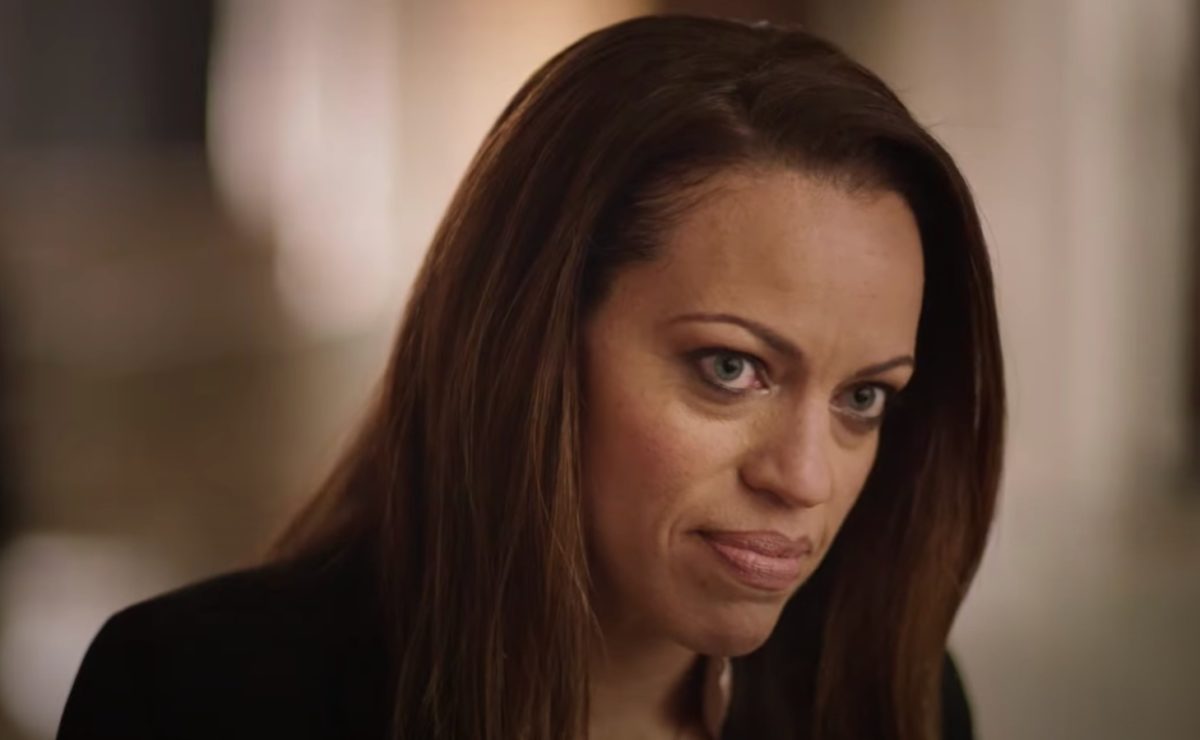
Kirby Dick and Amy Ziering’s conventional but powerful new documentary On the Record is as much about the personal struggle of Drew Dixon and others in telling their stories of horrifying sexual misconduct at the hands of hip-hop legend Russell Simmons as it is about how the voices of black women have been marginalized throughout history, leading to a reticence to speak out, especially in these last few years. It’s an emotional gut-punch of a film that will have one appalled that Simmons continues to thrive in the industry and enraged at the systemic limitations endured by black women, resulting in a lack of career advancement and a fear of societal rejection if they go against their own culture. – Jordan R. (full review)
The Painter and the Thief (Benjamin Ree)

Human connections are almost always random. Even in school when meeting new friends for the first time, the reasons that sparked our gravitation towards one another aren’t always clearly defined. Maybe one union was the result of common interests, but perhaps another was born from an indescribable feeling. Sometimes our best friends or romantic partners end up being the people we used to intentionally avoid. It therefore only takes a moment removed from our inherent preconceptions, prejudices, and jealousies to open up a world we would have otherwise ignored. One conversation can spark another. One topic can bleed into a shared memory or overlapping ambition. Suddenly that stranger becomes your confidant and you forget there was ever a time in your life when they weren’t by your side. – Jared M. (full review)
Rewind (Sasha Joseph Neulinger)

When films like Rewind are presented as exercises to reconstruct circumstances surrounding the sexual abuse its filmmaker endured, you can assume the journey will deal with unearthing previously unknown details about what happened through repressed memories. Despite the liberal use of home videos taken by director and subject Sasha Joseph Neulinger’s father to relive this harrowing past, however, his motivations are very different. Sasha actually remembers everything that occurred: the pain, sorrow, and suicidal thoughts. He can look at himself on-screen and know whether he was still a happy child pre-abuse or if his life had already been forever changed. His purpose of going back is conversely about documenting the process of confronting what happened. It’s about ensuring today’s victims receive the respect they deserve regardless of age. – Jared M. (full review)
Space Dogs (Elsa Kremser and Levin Peter)
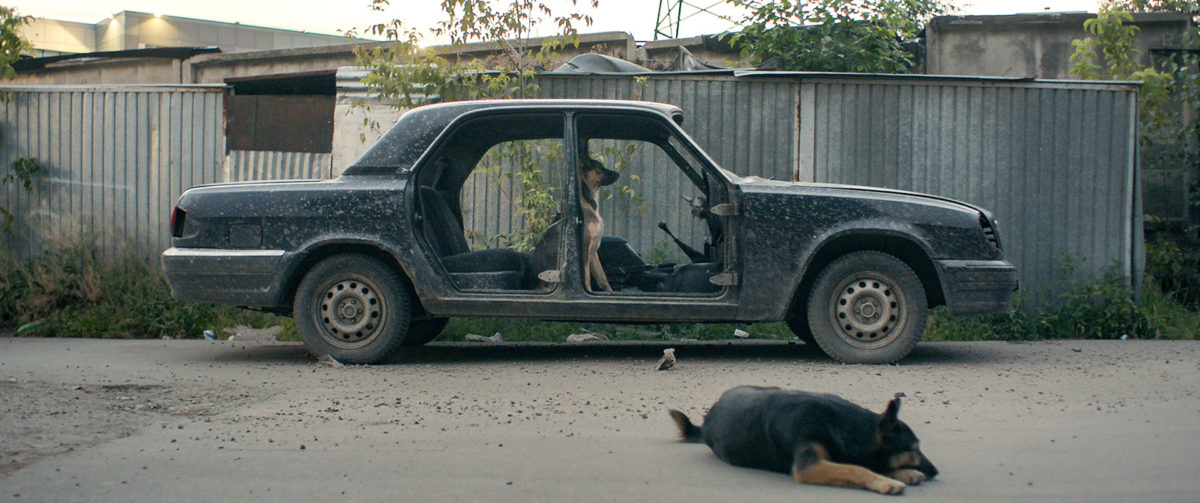
Legend has it that when Laika died on November 3, 1957, following a 5-hour journey that turned the dog into the first living creature to orbit the Earth, her spirit returned to Moscow, roaming the streets where Soviet scientists had plucked her. Elsa Kremser and Levin Peter’s entrancing Space Dogs begins where the legend ends, and hangs in that same mystic region all through its hour and a half. It’s an odyssey that keeps seesawing between the terrestrial and the astral, trailing behind a couple of Muscovite mongrels to connect their earthly meanderings with a larger question about the ways in which humans have colonized space, and recruited other species as martyrs in the pursuit. – Leonardo G. (full review)
Time (Garrett Bradley)

In September 1997, sparked by desperation and noble intentions, Rob Richardson committed armed robbery. He was handed a 65-year prison sentence with no real hope of getting out. His wife, Fox, who was expecting twins at the time and was already a mother to their four boys, was an accomplice, but took a plea deal and was released three and a half years later. The last two decades of a family ripped apart sets the stage for Garrett Bradley’s Time, a formally stunning masterwork of empathy, exhaustion, love, and rage. The title of Time isn’t just a reference to the sentence Rob was given. It’s every moment he’s deprived of as the world continues outside his cell. It’s what Fox and their family sacrifice in their daily struggle to get him out. It’s every instant that the system in power uses to make them wait for an answer. It’s a piece of something that they may be able to win back if Rob was to be released. And it’s a sense of timelessness in which the director captures it all with her black-and-white, symphonic approach, which melds the political and personal in overwhelmingly heartbreaking ways. – Jordan R. (full review)
The Truffle Hunters (Michael Dweck and Gregory Kershaw)
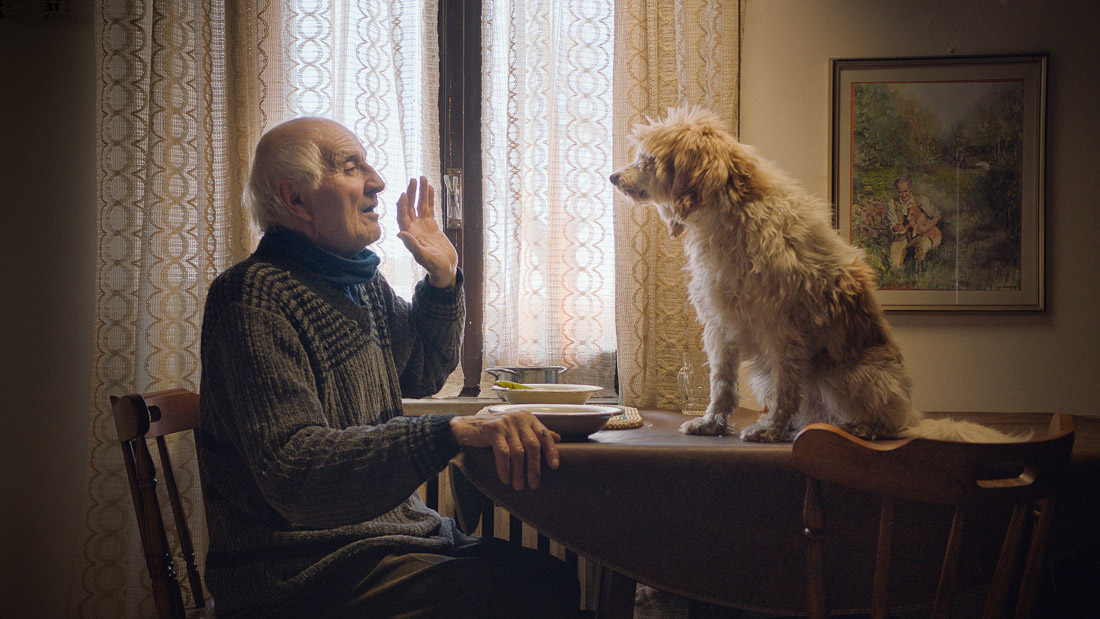
“If you’re not picky, you can eat them on anything.” So says one of the elite group of experienced, elder Italian truffle hunters portrayed in Michael Dweck and Gregory Kershaw’s stately, charming new documentary, regarding their prized possessions. The only issue is these delicacies from the ground are impossible to find without knowledge, skill, and a trusted dog. And when they are miraculously discovered, they go for an incredible amount of money. The Truffle Hunters explores this age-old tradition of culinary treasure-hunting and the clash of passion and commerce around such a specific way of life. Executive produced by Luca Guadagnino, it’s also far from your standard documentary in terms of the picturesque approach in which we meticulously enter this Northern Italy milieu. – Jordan R. (full review)
You Don’t Nomi (Jeffrey McHale)

Back in 2016, the Twitter account for French studio Pathé Films released a NSFW trailer for the DVD and Blu-ray release of Paul Verhoeven’s much-reviled (or, rather, formerly reviled), T&A-fueled camp classic, Showgirls. This trailer itself was a work of pulsating beauty. Never had the story of Nomi Malone looked so pristine. And never had the film itself seemed so progressive. After all, the NC-17-rated 1995 flop had been brutally pushed down the cultural stairs upon release, and for years afterward. Only in recent years had the tide begun to turn. “APRÈS LES CRUCIFIXION,” the intertitles read, “LA RÉSURRECTION.” In essence, those five words tell the story of Showgirls’ unexpected second life. – Chris S. (full review)
Honorable Mentions
Coded Bias
Crip Camp
The Dissident
The Donut King
I Hate New York
King of the Cruise
The Last Out
The Mole Agent
Mucho Mucho Amor
Red Penguins
Totally Under Control
A Thousand Cuts
Secret Love
Spaceship Earth
Welcome to Chechnya
Zappa
